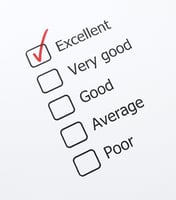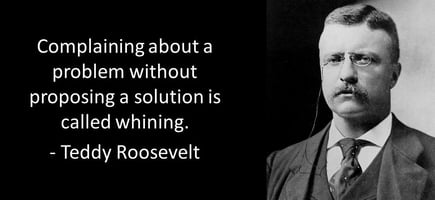Agency Evaluation Issues “Nothing ever happens after the assessment is finished.” This is worst...
Why you should create action plans after each agency evaluation
Agency evaluation - is the tail wagging the dog?
Many organizations find it so difficult to administer and manage an agency relationship management program that they end up skipping the most important phase – Action Planning. The goal of the evaluation process is not simply to gather opinions and information for storage! Rather, the purpose of the program is to develop actions that lead to constant improvement.
Take a moment. What actions can you recall being implemented as a direct result of your strategic performance assessment process? Is there widespread acceptance in your organization that the process is a really helpful tool for keeping things on track?
"Action planning", it's too difficult!
The usual reason for not getting to Action Planning is that managers of evaluation programs find themselves exhausted by the time they have completed the information gathering phase. No wonder. It can be a nightmare to develop and prioritize assessment criteria, identify assessors and chase them to participate, then collate and analyze multiple inputs. A further complication can be agency/supplier participation if a self-assessment of their performance is required. So if simply getting information is achievement, no wonder nobody then wants to go the extra mile and do something useful with it.
But gathering information is not the end game. The whole point of an evaluation program is Action Planning. If you view information gathering as the goal of the program then maybe the tail is wagging the dog!
How Best To Undertake Action Planning
I firmly believe that Action Planning is best accomplished via a meeting involving the senior management of the Client and Agency/Supplier. At the meeting the participants should draw on the results of the assessment phase looking for both strengths and areas for improvement. Where these are uncovered and agreed the participants can develop and discuss approaches to specifically address them. Once decided, these should be recorded.
The benefits of this approach include:-
- The process is de-personalized. Participants are discussing findings that have emerged from the assessment phase. The discussion is ‘informed’ by drawing on the aggregated outcome from a rigorous assessment process.
- The process is comprehensive. All important issues about the relationship (good and bad) are on the table. Participants cannot overlook matters if they go through all the assessment outcomes in a disciplined manner.
- The process is collaborative. The Agency/Supplier is in the room to participate and contribute. They have a big stake in ensuring that good Action Plans emerge. And of course, they have the opportunity from an informed positioned of being able to critique the Client’s performance and propose actions here too.
Agency evaluation is all about the Planning!
So in summary, if through administrative issues your evaluation program is only used to gather information and agree a score, you are selling yourself short. The key goal of should be Action Planning. The test of success for your process should be the extent to which it really does help keep the relationship on track.
What Action Plans can you recall being developed from your evaluation program?




